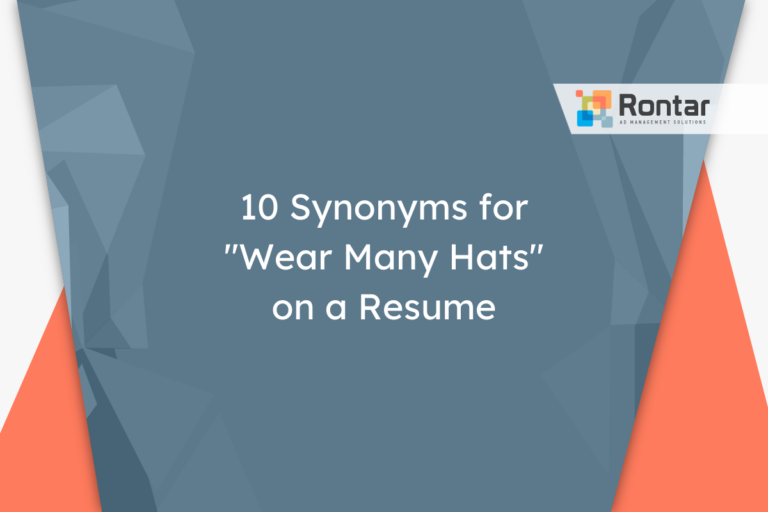10 Other Ways to Say “Looking Forward to Your Feedback”

In any workplace, giving and getting feedback is key to doing a good job. The way you ask for feedback can affect the kind of response you get. “Looking forward to your feedback” is a common phrase, but it can get boring to use the same line over and over.
This article offers ten different ways to say it that can make your request stand out and show you’re genuinely interested in what others have to say.
Is It Professional to Say “Looking Forward to Your Feedback”?
Using the phrase “looking forward to your feedback” in a business setting is professional, formal, and polite. It conveys eagerness to receive input or criticism in a respectful manner. This phrase is suitable for almost any situation where feedback is requested, including with clients, colleagues, managers, or external business partners. It fits seamlessly into emails, letters, and even in verbal communications during meetings or presentations.
Email example:
Dear Mr. Thompson,
I have attached the proposal for the upcoming project as discussed. Your insights have always been invaluable to us, and I am particularly interested in your opinions on the proposed timeline and budget.
Looking forward to your feedback.
Best regards,
Emily Carter
Pros:
- Conveys respect and eagerness for insights.
- Promotes open communication and constructive criticism.
- Appropriate for a wide range of professional scenarios and communication channels.
Cons:
- May be seen as overly formal in more casual or internal communications.
- Could be perceived as a cliché due to its frequent use.
- Some recipients might feel pressured to provide feedback.
While “looking forward to your feedback” is widely accepted and understood, one might consider using an alternative phrase to avoid repetition or to tailor the tone more closely to their relationship with the recipient.
10 Other Ways to Say “Looking Forward to Your Feedback”
There are various ways to express anticipation for someone’s feedback without always using the same phrase. Here are ten common alternatives to “Looking forward to your feedback” that can be used in a professional email within a workplace environment:
- Eager to hear your thoughts.
- Excited to receive your input.
- Awaiting your suggestions eagerly.
- Keen to get your perspective.
- Anticipating your insights.
- Anxious to see your opinions.
- Hope to hear your feedback soon.
- Looking for your advice on this.
- Would love your thoughts on this.
- Couriously awaiting your impression.
1. Eager to hear your thoughts
This alternative conveys a sense of enthusiasm and openness to the recipient’s opinions. It’s less formal than “Looking forward to your feedback” but still remains professional and polite, making it suitable for emails to colleagues or managers where a friendly tone is appreciated.
This phrase is particularly effective in situations where you’re seeking input on creative or strategic decisions. It’s ideal for use with colleagues or project stakeholders in a somewhat informal but still professional setting or medium such as email or direct messages.
Here’s an example:
Dear Alicia, I've just finished the draft of the marketing plan for next quarter. Eager to hear your thoughts on the proposed strategies. Best, Tom
2. Excited to receive your input
This synonym of “Looking forward to your feedback” adds a touch of excitement, suggesting that you value the recipient’s contribution highly. It’s professional, yet it conveys more warmth and personal investment in the recipient’s opinion.
It’s particularly well-suited for situations where you’ve worked closely with the recipient on a project, or you’re in a mentor-mentee relationship. This phrase is perfect for email communications where you want to emphasize the importance of the feedback you’re seeking.
Example:
Dear Luke, Thank you for guiding me through the project process. Excited to receive your input on my final submission. Warm regards, Sophie
3. Awaiting your suggestions eagerly
This variant is more explicit about your anticipation and eagerness, which helps underline the importance of the feedback. Though it is slightly more formal, it still maintains a professional tone.
This alternative is best used in scenarios where feedback is critical to moving forward with a project, making it suitable for emails to supervisors or mentors. It works well when you need detailed suggestions to refine a project or idea.
Email example:
Dear Ms. Patel, Following our discussion, I have made the initial changes to the design. Awaiting your suggestions eagerly. Regards, Evan
4. Keen to get your perspective
This phrase implies a specific interest in the recipient’s unique viewpoint or expertise, positioning their feedback as valuable. It’s quite professional while also being polite and slightly informal, which can help foster a collaborative environment.
Use this when you’re seeking insights from someone with a specific expertise or viewpoint that is important to your work. It’s great for emails to colleagues in other departments or external consultants.
Here’s an example:
Hi Jordan, We're revising our user experience strategy and I'm keen to get your perspective given your expertise in user interface design. Best, Mia
5. Anticipating your insights
By using this alternative, you indicate that you’re not just looking for any feedback, but specifically for insightful observations that can drive improvement. This phrase is moderately formal and highly professional, making it ideal for more critical analyses.
This is particularly suitable for analytic or research-oriented communications, such as soliciting comments on a data report or project review. It works well for emails to experts or senior colleagues.
Email sample:
Dear Dr. Reynolds, Following our recent data collection, I've compiled the preliminary report. Anticipating your insights on its findings. Sincerely, Nathan
6. Anxious to see your opinions
This phrase subtly communicates a higher level of eagerness or concern for the recipient’s feedback, perhaps due to the high stakes of the situation. It’s professional, though its use of “anxious” imparts a slight degree of urgency and personal investment.
Best used when you’re genuinely concerned about the outcome of a project or decision and value the recipient’s feedback greatly. It’s apt for urgent project emails, particularly with project leaders or clients.
Example:
Hello Karen, Given your expertise, I'm anxious to see your opinions on our project’s current direction. Regards, Derek
7. Hope to hear your feedback soon
This alternative is straightforward and less formal, but still perfectly professional and polite. It implies a desire to receive feedback promptly without sounding too urgent.
It’s an excellent choice for follow-up emails or when a quick turnaround on feedback is necessary, such as after a meeting or presentation. Suitable for communications with peers or managers, especially where there’s an established rapport.
Email example:
Dear Sam, Just a quick note to say I’ve finished the updates to the proposal. Hope to hear your feedback soon. Cheers, Alex
8. Looking for your advice on this
This phrase clearly states that you’re seeking not just any feedback, but guidance, making it ideal when you view the recipient as a mentor or expert. It’s a professional and formal way to solicit deeper counsel.
This wording is particularly effective for soliciting in-depth feedback from someone with more experience or expertise than you, such as a mentor or a senior colleague. It’s most suitable for email communications where you are asking for substantial guidance on a project or decision.
Here’s an example:
Dear Professor Thompson, I'm at a crucial point with my thesis and am looking for your advice on this next chapter. Respectfully, Liam
9. Would love your thoughts on this
This alternative is less formal and conveys a friendly, approachable tone while remaining professional. It indicates you not only want but would appreciate the recipient’s feedback, adding a personal touch.
It’s ideal for less formal communications, perhaps with colleagues you work closely with or in a less hierarchical organization structure. This phrase is particularly effective in emails where you want to encourage open and honest feedback.
Email sample:
Hi Emma, I’ve just wrapped up the initial draft of the marketing strategies document. Would love your thoughts on this. Thanks, Jake
10. Curiously awaiting your impression
This phrase introduces a sense of curiosity, implying that you’re open to and interested in the recipient’s unique take or impression. It is somewhat informal yet remains professional and polite.
Perfect for situations where the project or topic at hand may benefit from a fresh perspective or innovative ideas. This alternative is well-suited for emails to creative partners, new colleagues, or when seeking feedback on more conceptual work.
Example:
Dear Zoe, I’ve attached the latest design concepts for the upcoming campaign. Curiously awaiting your impression. Warmest regards, Chris
Final Thoughts
Choosing the right way to ask for feedback can help improve communication and build better relationships at work. Each alternative phrase provided offers a different tone, from casual to formal, fitting various situations and audiences. Using different phrases can keep your requests fresh and show genuine interest in feedback.






